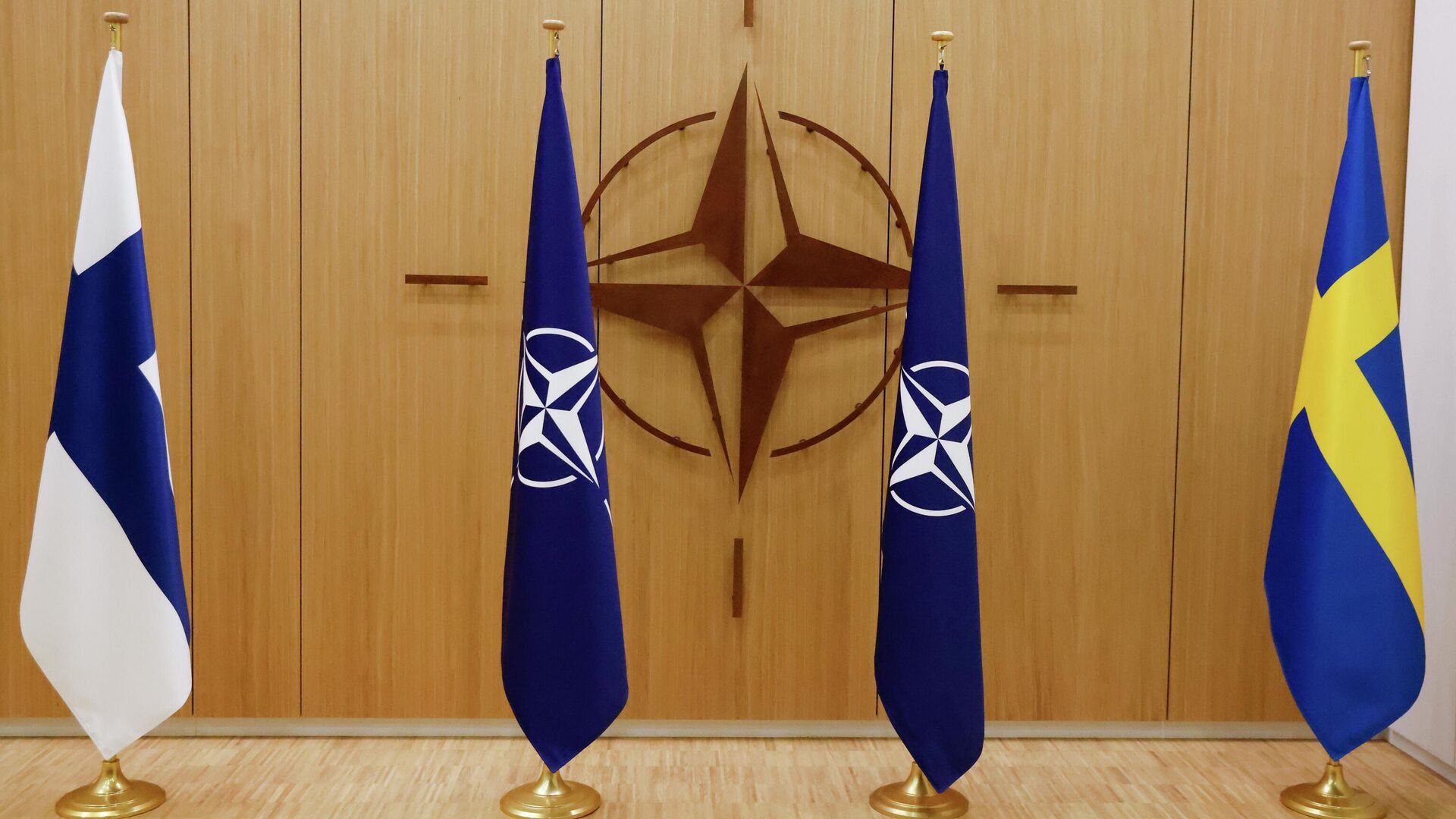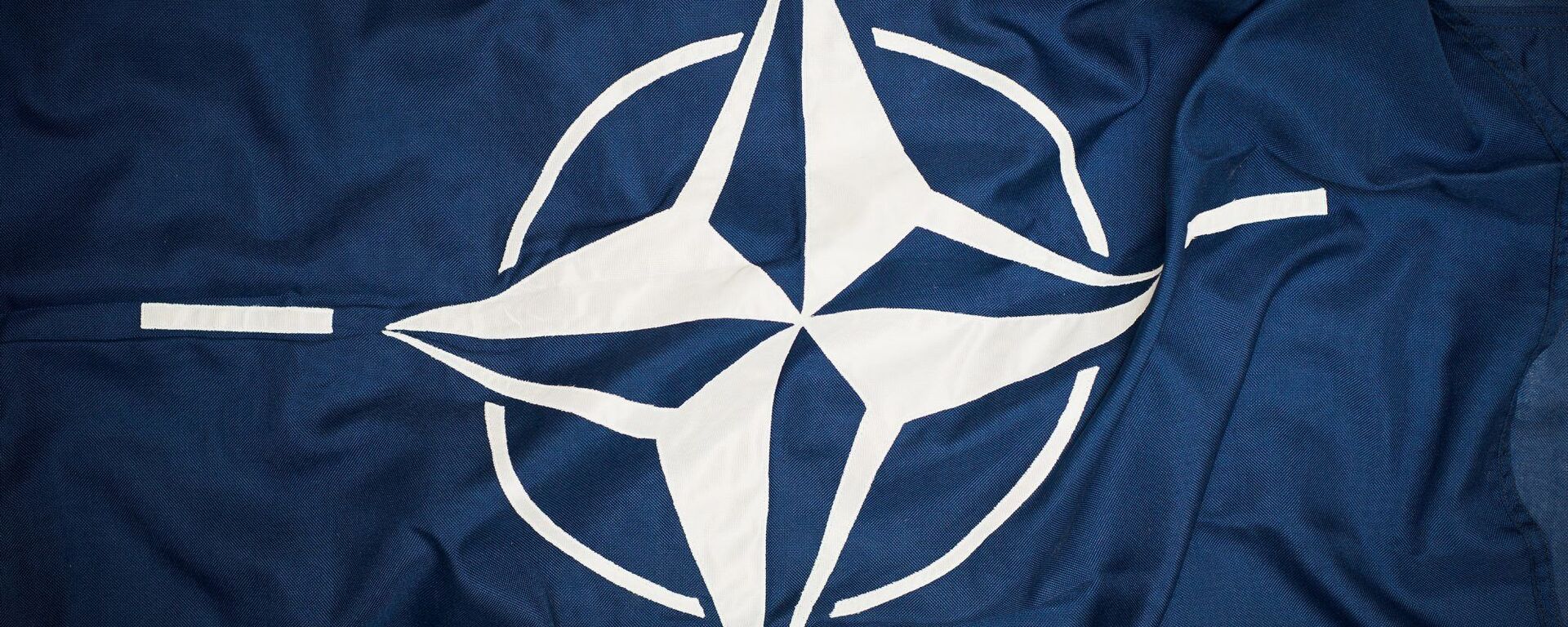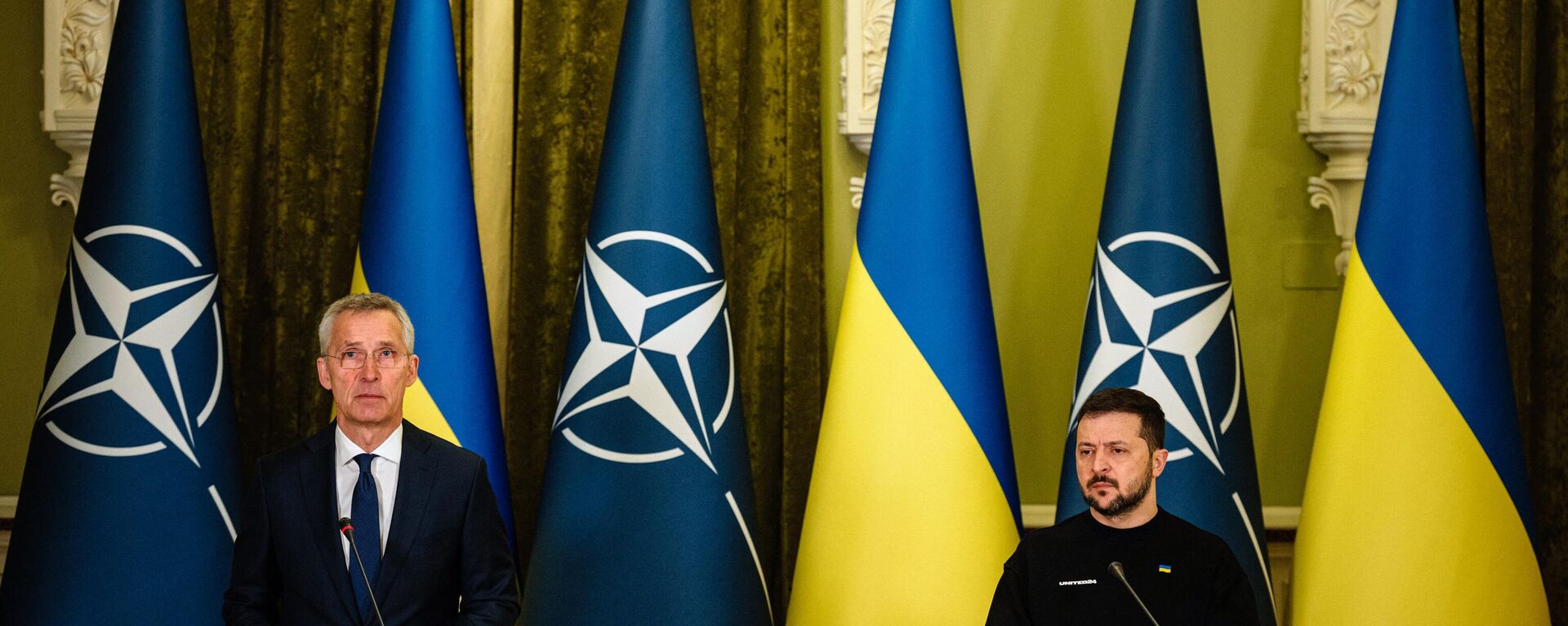Former Pentagon Analyst: Sweden Should Reconsider ‘Turmoil’ It Would Become Part of in NATO

© AP Photo / JOHANNA GERON
Subscribe
A new rift has opened between Muslim-majority Turkiye and Sweden, where a legal protest was allowed to take place involving the public burning of a Quran. President Recep Tayyip Erdogan’s government was one of several to issue complaints to Stockholm, accusing the Swedish government of “complicity” in the desecration of the holy book.
Ankara and Stockholm already have a rocky relationship as the Scandinavian state seeks to join the NATO alliance, but Turkiye has conditioned its assent for Sweden’s admission based on the ending of its support for Kurdish nationalist groups that Ankara considers terrorist organizations.
Michael Maloof, a former senior security policy analyst in the US Office of the Secretary of Defense, told Sputnik that both Sweden and NATO should consider what benefit is gained by adding the Scandinavian state to the alliance, especially given the kind of tensions that further NATO expansion to the East is likely to create in the region.
Maloof explained that NATO’s policy “seems to be to contain Russia at all costs, never mind anybody else and what their political considerations might be. I think it's been damaging for Europe generally to have this kind of an expansion. It certainly has alarmed [Russian President Vladimir] Putin to the point that he basically said ‘it's a red line if you do it in Ukraine,’ and they attempted that, and we saw the reaction, it had to do with fundamental security.”
“The United States does not appreciate the sensitivities and the security concerns, historically, of Russia, and previous to that in the Soviet Union. When the Cold War was over, NATO expanded, but the Warsaw Pact went away. And so that raises a very serious question: what's the point and purpose of NATO's continued existence? Before [the conflict in] Ukraine, they were looking around for a new purpose. We had them looking into space, looking at the Arctic, NATO officials now are looking into the Asia-Pacific. What is that? What's that all about? What's the point? It really raises questions about what the concerns are, really, about dominance and the need by the United States and using NATO as a basis to extend its hegemony everywhere - and at what cost,” Maloof said.
The former Pentagon official noted that Sweden has traditionally been unaligned and that “neutrality was important for Sweden before,” adding that “ought to remain that way.” Stockholm already has its own security arrangements with other Scandinavian countries separate from the NATO alliance, and expanding that to include 31 other states across Europe “can have repercussions.”
Maloof noted that after Erdogan’s recent election victory, he can hold up Sweden’s admittance to NATO “indefinitely.”
“I expect him and [President Viktor] Orban in Hungary to maintain their opposition for as long as they can, unless they get some deal too hard to resist, which I haven't seen come down the pike yet. But for now, I think, as far as NATO's mission is concerned, it is to expand. They have what they regard as a new purpose, and that is to contain Russia.”
“And in the case of Victoria Nuland in the Biden administration, who is number three in the State Department, she and the other neoconservatives would love to see Russia dismantled with regime change. But we've seen their previous efforts at regime change not only in Iraq, but also in Libya and they were disastrous, total disasters. And they admitted there was no second-day plan, if you will, when that occurred,” he noted.
“In the case of Russia, Russia has more nuclear weapons than the United States. Why the United States does not want a stable Russia is beyond me, I don't understand that, just by virtue of the fact they have those nuclear weapons. What is their point in wanting to bring down Russia and maybe even partition it? There is no rhyme or reason. There is no foreign policy basis for it.”
“And the Europeans are just going off as if they're continuously in ‘la la land’. They need to step up. They physically are located next door, virtually, to Russia. They receive so many essential resources from Russia. And they basically have closed off. For what? All they did was cut it off just to spite themselves and then hurt themselves. And that's what it's now done to their own economic base, at least for the next one to two generations to come,” he said.
Maloof noted that Sweden “offers very limited overall ability” to the NATO alliance, apart from perhaps land for more military bases.
“Their contribution to NATO would be minuscule. It's a country of relatively few people. It's got geographical advantages, and if it works in combination with the other Scandinavian countries, it can become somewhat of a force, but certainly nothing to overwhelm Russia, unless they get some tremendous NATO assistance. But I think politically, it would hurt Sweden to go the NATO route. I think Finland will probably regret it as well in time,” he forecasted.
“NATO's continuous expansion up to the border of the Russian Federation is absolutely contrary to some half-a-dozen agreements that were made on indivisibility [of security], which is defined as ‘not arming the West at the expense of the East’. And that's precisely what this NATO's eagerness for NATO expansion has done. And it has brought about this geopolitical turbulence that we need to somehow address and stop. If Sweden can remain neutral, that would be the beginning of trying to bring common sense to what is quickly becoming a geopolitical disaster.”
He noted the effect that joining NATO has had on Estonia, Latvia, and Lithuania, which are former Soviet republics and share a border with Russia, including severing long relationships and isolating Russian-speaking populations in those countries.
“The question is, how seriously does Sweden want to be a member? Are they being pushed into it? Do they realize what it would mean to give up their official neutrality position, especially with Russia? Do they want to cut off all ties? Do they want tense relations with Russia in the future? They are a border country. There's no question about it. There is some border of Sweden with Russia. Do they want to have that kind of tension with Russia in the future?”
Ultimately, Maloof noted that Washington needs Turkiye a lot more than it needs Sweden, especially since Ankara is independent-minded enough to make its departure from the US orbit a possibility if it’s not properly wooed by the West.
“I don’t think the United States has sufficient leverage over Turkiye right now. Because Turkiye, easily - and I think what the United States fears the most is that Turkiye will just slip into being more friendly with Russia. Erdogan has purposely played that role. And he knows it and it has benefited there, he gets what he wants.”
“I think that even though Turkiye is a member of NATO, Turkiye is also very prominent in the establishment of the multipolar world order, which Russia and China are now creating, along with Iran. Because Turkiye, along with Iran, together form very valuable economic corridors for the multipolar world order along with the Belt and Road Initiative, the New Silk Road,” he said, noting that many of the partner countries are in BRICS and that there are now “some 40 countries that want to join BRICS. When you put them all together, they're going to constitute more than half the population of the world.”
“And why are these countries doing it? It's because they are sick and tired of US hegemony and US economic, political and military dominance. And if they can get out from under the sanctions, the economic sanctions, that will better them and get out from under the dominance of the US dollar as the so-called ‘world currency’. Those things are going to matter a great deal to those countries in order to avoid being under the thumb of the US and the neoconservatives. I think it's going to make for a different world,” he explained.
Maloof added that this acceleration has been created by the conflict in Ukraine and the West’s response to it, from which much of the Global South in Asia, Africa, and Latin America, has abstained from joining in Washington's condemnations and sanctions.
“This NATO expansion thing is very artificial and we're also going to be seen in the future, even if there's a ceasefire in Ukraine, we're going to be seeing the Eastern European NATO countries looking at western Ukraine, to take it apart. Ukraine itself would probably just be a shell of what originally was. Because Russia will not be giving up its territory.”
“We're going to be seeing a lot of geopolitical changes, I would say, within the next decade. And they're going to be mind-blowing in some aspects. And I think Sweden has got to determine whether it wants to be in the midst of that potential turmoil or not. Certainly, it's going to be under pressure from its neighbors. There's no question about it. I think that Turkey's objections, for now, hopefully has given Sweden some reason for pause and considering whether it wants to go the NATO route or not, and whether it's worth it to them.”



